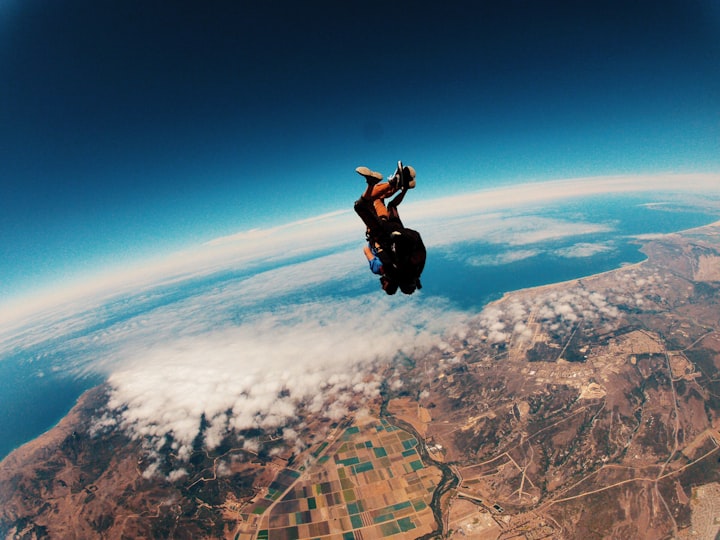Gravity
Scientific? Or sentenced by past actions...

Some would look at gravity as a mere state of being. The fabric of time merely woven rocks together, causing them to spin and collect larger rocks. Eventually, forming the planetary and gravitational systems we witness daily.
However, this is not the case. There is an origin story to our beloved gravity that keeps everything in place. At one point, such a system did not exist. There was more "freedom" involved. We could "come and go" from planet to planet with extraordinarily little effort.
Some would even go as far to say that we are currently in "Dark times".
Several millennia ago, around 20,000 B.C., long before our highways and freight trains, there were gravity-free planets in our solar system. Humanity could jump (after a good running start) from Earth to the Moon. It was a couple of days' worth of travel, but it was not a lonely journey as you would encounter humans on the way back from the Moon and other planets.
However, there were certain "channels" between each planet that were safe and rich with oxygen. Sometimes, animals would stray from the "channels" and fall prey to the freezing cold of space. If the dead animal were close enough to the "channel", one could grab the remains along the way and use the meat, bones and skins for nourishment and trade goods.
Such trade goods were traded on each planet before and after each journey. You could trade animals with localized rock, gases, and other materials to use for clothing and other equipment. Since gravity was non-existent, inter-planetary travel was also much easier. Meaning that staying on the warmer sides of planets truly took little effort.
However, humans became less and less grateful for these abilities and started taking such travel for granted. Pretty soon they started taunting the higher-purpose beings who initially granted such planetary passages. It wasn't long before the higher-purpose beings grew tired of the blasphemy and taunting from the lower-life humans and started cutting away the "channels" between each planet.
They started with Pluto. Even from Neptune, the journey in the planetary channel was at least 3 months. Pluto was room temperature where the humans went for their far away, "Nordic-like" getaway when the channel was active. Unfortunately, once the channel was destroyed, the oxygen and warmth. Thousands perished on Pluto alone.
The higher beings continued slicing through channels. Suffocating and freezing the humans on each planet out of existence.
Luckily, once they got to Earth, it was in a more favorable spot for the humans. Cutting the channel here had a lesser effect on the humans. Most died, but some still survived.
Isolation on Earth was not deemed enough for the higher beings. They also agreed to form a localized downward pressure as an eternal reminder of humanity's mistake for their sins. This pressure became what we would come to know as gravity. This cosmic pressure caused such a shock to humans that some died from not having the strength to resist. However, some strong-willed humans did make it through.
This is why modern-day humanity longs to go back to space. Not to discover the undiscovered, but to soothe a millennia-spacing, deeply rooted longing to recover what we've lost. The longing that will never go away until humanity once again becomes multi-planetary.
Once we are traveling across our solar system, then we may regain the state of complacency. There's a change that the longing will never go away. Only the future will unveil this to us.
Gravity is not a coincidence of historical events, but a punishment from days long gone. The punishment of isolation.
About the Creator
James Crawford
Just a simple Christian/techie/gamer that also goes by the musical artist name "newbjamsir" as well as "newbpcsir" on Twitch and YouTube. You could say I've got a thing for music, gaming, sci-fi, technology and writing stuff.






Comments
There are no comments for this story
Be the first to respond and start the conversation.